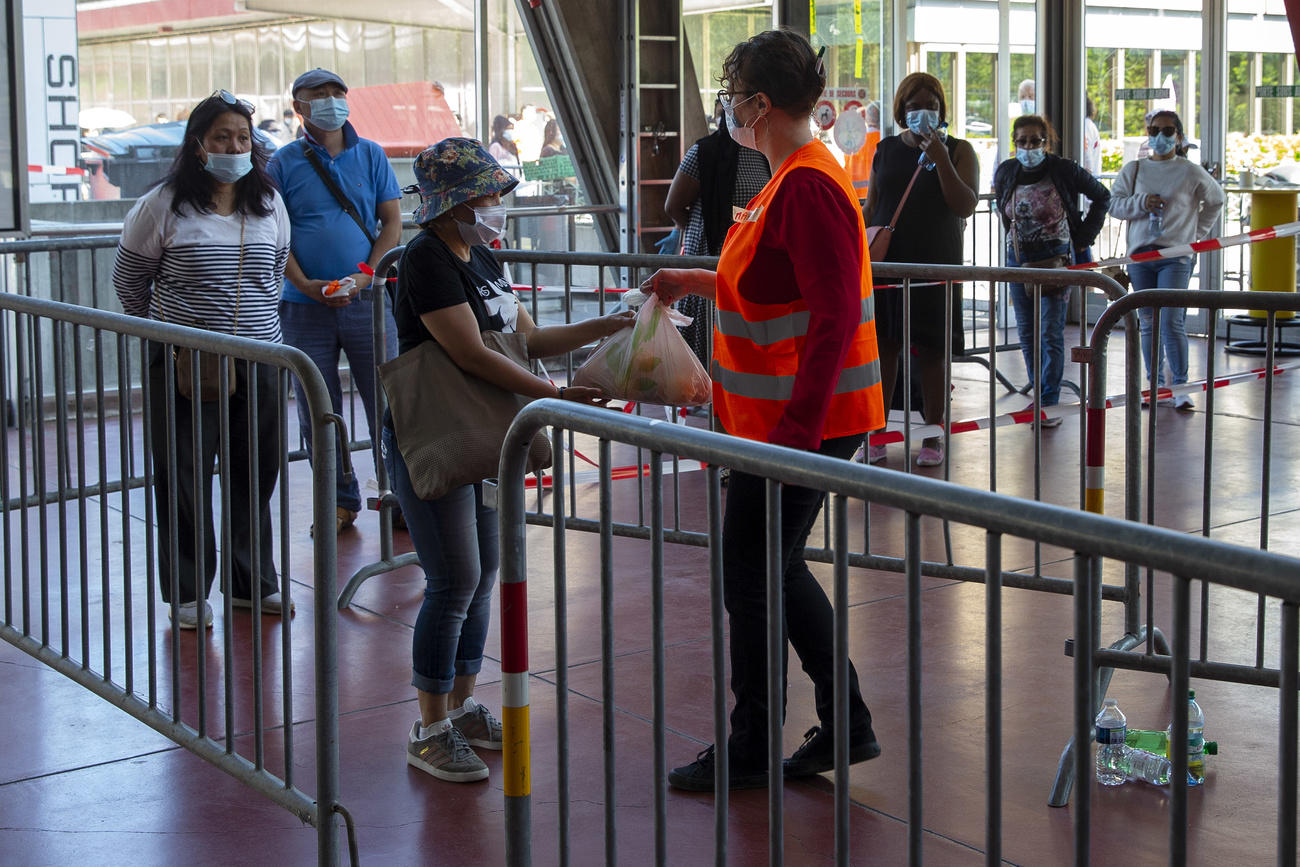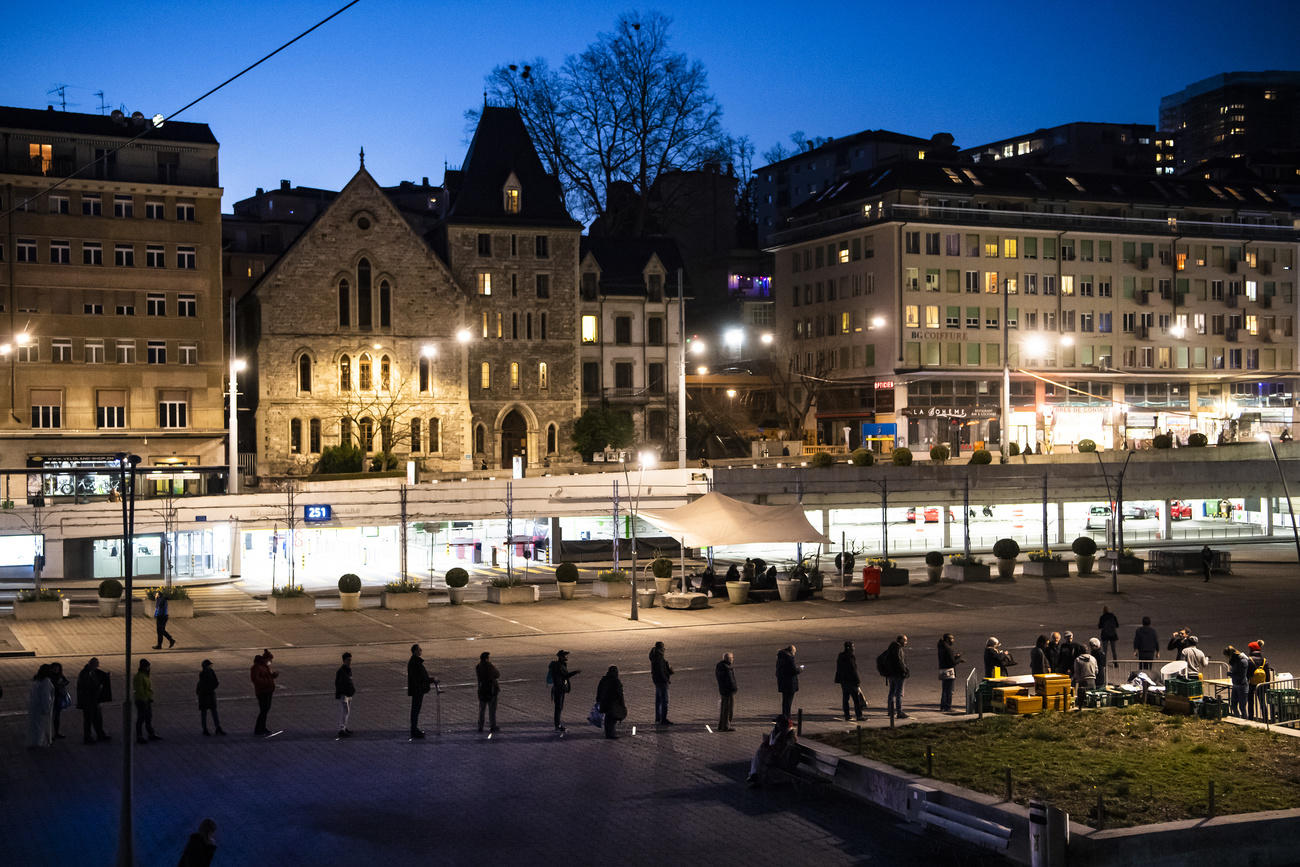
Disadvantaged groups almost five times more exposed to Covid-19

People living close to the poverty line are up to 4.5 times more exposed to the effects of Covid-19 than the rest of the population, according to a survey of people in Geneva who have turned to emergency food handouts.
The surveyExternal link, carried out by the Geneva University Hospital (HUG) and Médécins sans Frontières (MSF) [Doctors Without Borders], was based on interviews with 532 people who queued for food handouts in Geneva on May 2.
Of those interviewed, 75% were women and 52% did not have a valid Swiss permit.
The survey reveals that the effects of the virus disproportionately affect such social groups for various reasons – mainly a difficulty in maintaining social distancing and reduced possibilities of getting treatment or a test.

More
Coronavirus leaves irregular migrants in Switzerland in precarious situation
For example, just under half of respondents reported living in overcrowded apartments, defined as more than two people per room. Some 11% lived in housing of over four people per room.
‘Significant exposure’
Meanwhile, only 40% had health insurance – which is obligatory in Switzerland. This number dropped to below 10% for those without a valid permit. A lack of insurance, and economic troubles generally, were mentioned by 58.6% as reasons for avoiding getting medical attention.
In total, 8.8% of those interviewed had shared an apartment with somebody infected by Covid-19, but less than half of them went to get tested.
Taken together, these factors “suggest significant exposure to and transmission of the virus within this population group”, according to the study authors.
On the day the study was done, 1% of the total population of canton Geneva had tested positive for the coronavirus; among the survey group, this figure was 3.4%.
Over 1,500 people queued up on May 9 to get free food parcels in Geneva, highlighting the impact of the coronavirus epidemic in the expensive Swiss city. A distribution for 2,500 people took place the previous Saturday and another is planned next weekend.

More
Coronavirus: the situation in Switzerland

In compliance with the JTI standards
More: SWI swissinfo.ch certified by the Journalism Trust Initiative





























You can find an overview of ongoing debates with our journalists here . Please join us!
If you want to start a conversation about a topic raised in this article or want to report factual errors, email us at english@swissinfo.ch.